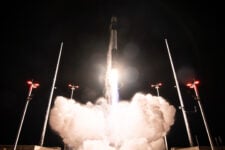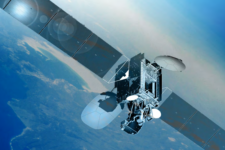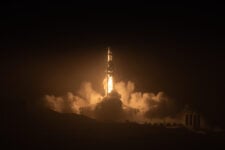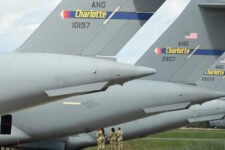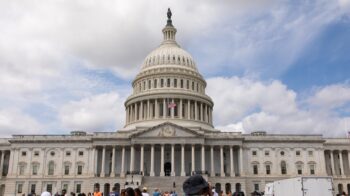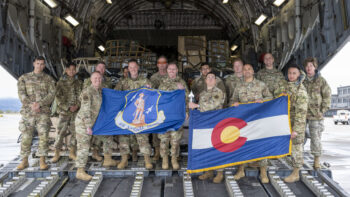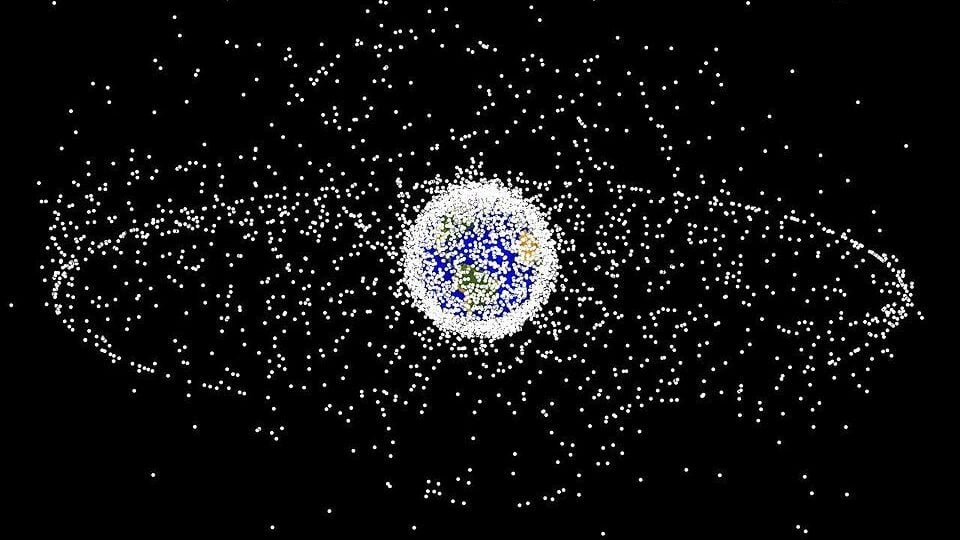
The orbital population of active satellites and dangerous debris continues to grow by leaps and bounds. (NASA illustration)
WASHINGTON: Industry operators have until Aug. 8 to tell the Commerce Department what space tracking and spacecraft safety services they need beyond what the Defense Department now provides, as well as any concerns about usage rights and legal liability for any of their own space situational awareness (SSA) data they might share with the Office of Space Commerce (OSC).
The July 8 request for information (RFI) follows the launch of a “listening tour” by the Commerce office’s new director, Richard DalBello to refine its exact role in providing SSA, and eventually space traffic management, services to not just US industry, but foreign government and commercial operators as well — as set out under the 2018 Space Policy Directive-3 (SPD-3).
OSC is asking for responses to four questions, the RFI shows, from “spacecraft operators, SSA data providers (current and prospective, ground and space-based), SSA analytic and value-added service providers, academia, nonprofit entities, space insurance providers, and the legal community:
A. Data, products, and services needed by spacecraft operators;
B. Usage rights in data, products, and services needed and provided by spacecraft operators and value-added providers;
C. Framework for legal liability of spacecraft operators and the private sector; and
D. General feedback.
Chirag Parikh, executive secretary of the National Space Council chaired by Vice President Kamala Harris, said that following a proposed influx of funding proposed by the Biden administration for fiscal 2023, OSC is now “starting to go through the architectural reviews and how to be able to build out a prototyping capability, and partner with the commercial sector to be able to leverage that as much as we can,” according to a report by Space News.
The administration’s budget FY23 proposal for the office was $87 million, a major increase from the $16 million appropriated in FY22. And the Commerce Department and the Pentagon are expected to sign a memorandum of agreement for the hand off in August regarding its plans for taking over civil and commercial SSA responsibilities from Space Command.
“We are are very close” to the handover, one official involved in the negotiations reiterated today.
The RFI is the third issued by the OSC related to the impending move. The first, in April 2019, sought to discover what commercial SSA technologies and services were available. The second, in February 2022, asked more detailed questions on “commercial space object data” that could be used computer system, known as the Open Architecture Data Repository (OADR) being developed by OSC to manage space tracking data and crunch the numbers about close approaches and potential collisions.
The OADR, which also would import basic tracking data from SPACECOM, will be the linchpin allowing OSC to provide “basic” SSA services to industry for free, and potentially more sophisticated assistance in keeping spacecraft safe under some kind of fee structure. But up to now, the Commerce Department has not actually defined what those basic services might entail, or if and how they would improve upon the data and collision warnings provided by SPACECOM’s 18th Space Control Squadron — products that industry long has complained are inadequate, and will be even less useful as the amount of space junk and the number of satellites on orbit skyrocket.
OSC is considering “multiple basic services,” according to the RFI.
“First, OSC would provide on-orbit orbital safety assessments that include ephemeris and tracking-based conjunction assessment screenings, conjunction data message production with a calculated likelihood of collision probability, orbital determination quality assessment, timing of any future expected tracking, and pre-maneuver ephemeris screening,” the RFI explains.
“Second, OSC would provide end-of-life reentry assessments that estimate both the actual decay time and the ellipse of possible earth impact as satellites approach decay.”
Third, it would further “provide pre-launch coordination and launch coordination such as launch collision avoidance assessments, and disposal and reentry of launch detritus assessments.”
And, lastly, “OSC would provide evaluations of satellite owner and operator data before such data’s use in conjunction assessments.
OSC is asking for comments on the scope of those proposed services, as well as whether there is anything else operators feel they will need.
As for liability, there has long been a question of whether a company that provided data to OSC could later be held legally responsible if a satellite operator used that data to maneuver to avoid a predicted collision and ended up hitting either the incoming object itself or another spacecraft. The issue is even more complicated when it comes to on-orbit damage to a non-US spacecraft, because under the 1971 Liability Convention [PDF] the US government would be on the hook.
“OSC is evaluating the legal liability implications associated with the provision of governmental SSA data and basic spaceflight safety services. In this context, OSC is seeking information to consider whether the provision of governmental SSA data and basic spaceflight safety services that incorporate industry data or products raises liability concerns for those providing the relied on data or products,” the RFI states.
“OSC is also seeking public input on whether there are liability concerns with respect to spacecraft operators or value-added providers that rely on governmental SSA data and basic spaceflight safety services,” it adds.
In a Taiwan conflict, tough choices could come for Big Tech
Washington could do more to incentivize tech companies to distance themselves from China, but CEOs should examine how they’d react to a fight in the Pacific, CSET’s Sam Bresnick and Emelia Probasco argue.








